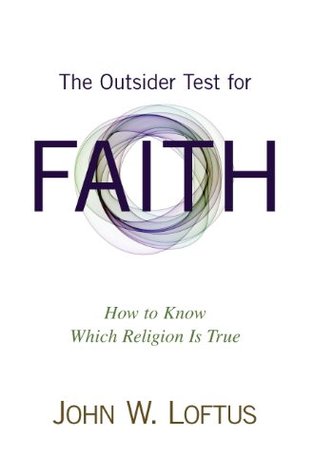Kindle Notes & Highlights
Read between
February 15 - September 2, 2019
Reason and faith are opposites, two mutually exclusive terms: there is no reconciliation or common ground. Faith is belief without, or in spite of, reason.”4 As such, “for the atheist, to embrace faith is to abandon reason.”5
“Faith is belief in the absence of supportive evidence and even in the light of contrary evidence.”
“Theology is faith-plus reason, with some observation allowed. Science is observation-plus reason, with no faith allowed.”
A. C. Grayling succinctly summarizes this view: “Faith is a negation of reason. Reason is the faculty of proportioning judgment to evidence, after first weighing the evidence. Faith is belief even in the face of contrary evidence.”
Bertrand Russell said: “We may define ‘faith’ as a firm belief in something for which there is no evidence. Where there is evidence, no one speaks of ‘faith.’ We do not speak of faith that two and two are four or that the earth is round. We only speak of faith when we wish to substitute emotion for evidence.”19
untrustworthy. Faith is trusting
Eller claims that if believers “can drag down real knowledge to their level and erase any distinctions between the true and the false, the known and the merely felt or believed or guessed, they can rest comfortably in their own undeserved self-certainty.”
Faith has no method. Faith cannot settle differences between believers. Faith does not lead to new discoveries. Faith cannot solve any problems. Faith cannot explain anything. Faith depends on mysteries. Faith can and does lead to a denial of the evidence. Faith is pretty much immune from debunking. Faith is rooted in fear and ignorance. With faith as a foundation anything at all can be believed or denied.
Probability is what makes for scientific progress and for good, sound reasoning, so therefore, unless someone can show why I should accept a less-than-probable conclusion, I should still base my thinking on the probabilities. If
Trust is based on the probabilities, which are in turn based on the evidence of past experience, that’s why faith is not the same as trust. If it were the same, Rauser would be equivocating on the meaning of the word faith, for faith would become equivalent to trusting the probabilities, which is the very thing for which I argue. Therefore, to say we need faith to think the sun will rise tomorrow is at best superfluous, completely unnecessary, utterly irrelevant, and at worst irrational. Christians will typically respond that faith is what is required to uphold the things we believe are most
...more


